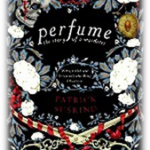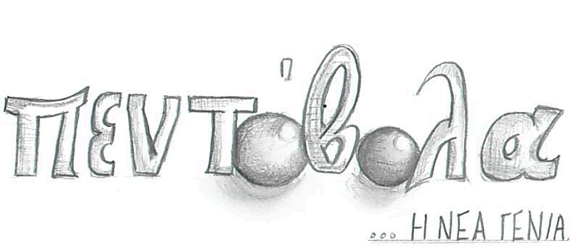
Η Aναγέννηση, είναι η περίοδος της ευρωπαϊκής ιστορίας η οποία χαρακτηρίζεται από την ανάπτυξη των γραμμάτων, των τεχνών, και των επιστημών και διαπνέεται από το πνεύμα της ελληνορωμαϊκής αρχαιότητας. Χρονικά βρίσκεται μετά τον Mεσαίωνα, 15ος και 16ος αιώνα, αλλά οι υποστηρικτές μιας «μακράς Αναγέννησης» τοποθετούν την αρχή της στον 14ο και το τέλος της στον 17ο αιώνα. Η διανοητική βάση της Αναγέννησης είναι ο ουμανισμός, που εδράζεται στον ανθρωποκεντρισμό της κλασικής ελληνικής φιλοσοφίας: «ο άνθρωπος είναι το μέτρο όλων των πραγμάτων».
Μαθήτριες του Σχολείου μας εμπνέονται από την περίοδο της Αναγέννησης, ενότητα στην οποία εργάστηκαν στο μάθημα των Αγγλικών, με διδάσκουσα την κ. Κρουσταλίδου.
Παρουσιάζονται:
• Μια διαφορετική εικαστική προσέγγιση, από τη μαθήτρια Ζαχαράκη Ελένη, του έργου ΄΄Ο Δαβίδ΄΄του Μιχαήλ Άγγελου, που φιλοτεχνήθηκε από το 1501 ως το 1504. Πρόκειται για ένα αριστούργημα της αναγεννησιακής γλυπτικής, σύμβολο δύναμης και νεανικής ομορφιάς.
• Μια κριτική στην αγγλική γλώσσα του μυθιστορήματος ΄΄Το άρωμα΄΄ (γερμ.: Das Parfum), του γερμανού συγγραφέα Πάτρικ Ζύσκιντ (Patrick Süskind), της μαθήτριας Καλομοίρη Δήμητρας, η οποία το επέλεξε καθώς θεωρεί ότι αποτυπώνει μια άλλη πλευρά της Αναγέννησης, πιο ζοφερή και ερεβώδη. Πράγματι, μέσα από το «Άρωμα» ο αναγνώστης μεταφέρεται στο γοητευτικό αλλά και ΄΄σκοτεινό ΄΄ Παρίσι του 17ου αιώνα και μυείται στην ιστορία της αρωματοποιίας.
Πηγές
https://tinyurl.com/mr3j9y33
https://tinyurl.com/3cppjy6u
https://tinyurl.com/bdtk8bkn
Perfume by Patrick Suskind and its input on the Renaissance period
 Patrick Suskind wrote one of the greatest historical fiction novels, Perfume: A Story of a Murderer. The book was published by the German author in 1985 and to this day readers all around the world think of it as a literary masterpiece. It’s considered a modern classic and it has influenced many. The book has actually been adapted into a movie. In 2006, Perfume: The Story of a Murderer came out as a psychological thriller, gaining a lot of media attention and positive reviews.
Patrick Suskind wrote one of the greatest historical fiction novels, Perfume: A Story of a Murderer. The book was published by the German author in 1985 and to this day readers all around the world think of it as a literary masterpiece. It’s considered a modern classic and it has influenced many. The book has actually been adapted into a movie. In 2006, Perfume: The Story of a Murderer came out as a psychological thriller, gaining a lot of media attention and positive reviews.
The story takes place during the eighteenth century in France. Considering that the Renaissance ended in the early seventeenth century, we are presented with an image of how life was post-Renaissance and the consequences of the French Revolution to the people of the laboring class and the poverty stricken crowds. As a collective, from a young age we are taught to believe that the Renaissance was only a period of enlightment, art and discovery, but that is not the case. Half of the population (meaning the working class) was living under horrible, degrading circumstances and hunger. In the book, we do not get the glorified version of the Renaissance. We are greeted with the suffering and the realness of the period.
The main character, Jean-Baptiste Grenuille, was born under horrid, repellent circumstances, on the streets of Paris, to an unloving mother, unable to raise him. She brought him into the world at a fish stall, leaving him there to die. She’d done that many times so she didn’t think twice of it. This just shows us the despair of the period that left many children parentless at the time. Grenuille became an orphan and for the first few years of his life he grew up in a care home. From the day he was brought in it was apparent that he was different. He had an inhuman sense of smell and could recognize odors from miles away, but did not have a scent of his own. He also had an eerie feeling to him since birth, like he did not feel any emotions or other times that he drained others from having them. Even from the first days of his life, he was feared and pushed away (example being Father Terrier who gave him away immediately, thinking he had the devil in him).
From the age of eleven, Grenuille had to work and basically care for himself. He was given away to a tanner and had to earn his money, which wasn’t enough to even support his livelihood. He had to work for survival. This is an accurate representation of the economy in the Renaissance and post-Revolution period. Technically, the economical system grew dramatically during this time, but France was mounting the economic crisis of the Revolution. Famine, riots and distress were exhausting the population and life was becoming an obstacle for the working class.
This is also the time where the plot becomes more appealing to the reader. Grenuille actually had a fascination with his job. He was hard working, not because he actually enjoyed the workload, but because his peculiar sense of smell was being exposed to new things at all times. At this point in the story, we understand that Grenuille is vicious. A young girl selling plums is his first victim. Her body odor mesmerized him, so he smothered her so he could smell her forever, which of course didn’t work. This is the moment Grenuille decided that he’d pursue perfume making so he could capture this essence forever and started working for Baldini, a successful man in this business. For a while Grenuille went along with his job, acquiring more skills by the day, excited to be in the present of people he could analyze the smell of.
At this point of the storyline, Baldini orders Grenuille to go to Grasse for more practice. Grenuille, tired of people and their meaningless existence, escapes his normal route to Grasse and closes himself in a cave for seven years, away from any other form of life. Grenuille wanting to clear his head stays there and day by day becomes more enclosed and self absorbed, as he clearly thinks he’s the superior form of man. When I first read the book, of course this part really fascinated me but reading it now from another viewpoint it’s even more interesting. Analyzing the symbolism from a Renaissance stance now, I would compare “The Great Grenuille”, a man enclosed in himself in a cave with no light, no other form of life and darkness (both metaphorically and literally) with a Dark Ages man or even a stereotype.
His behavior is justified by his narcissistic, ego-centered character and his hate for the rest of the world, but analyzing the symbolism, in my opinion him being content and protected in that cave represents the Dark Ages. This is because of the lack of knowledge, education and rights people had at that point. Most of the people at the time, if not all, wanted to be in that state of corruption and self-destruction, just like Grenuille. People at the time frowned upon every form of science and art and simply did not accept any growth. After the seven years passed, Grenuille realised that he can’t smell himself even though he has the best nose in the world and decided to end this way of life (if this even considered living) and left his cave, going back into the world. This critical change could symbolize the Renaissance. Grenuille came back into the light in a way, so this turn of events after this significant time period resembles the growth, the change and the enlightenment that came with the Renaissance.
Another plot point where the impact of the Renaissance is visible is immediately after Grenuille went back into the world. He was of course in an inhuman form, sick and left people aghast. Different scientists, anthropologists and doctors at the time took him in and studied him. They experimented with him, fascinated with what he had become, but kept him alive and tried to give him a second chance in life after. Before they did that though they exploited him in the name of science, which today would not be acceptable. Even though they treated him like an animal and displayed around, this plot point shows us the big steps science took at the time and the curiosity that had risen as a result of the Renaissance. After Grenuille was ready to go back into society, he finally went to Grasse and started working again, this time with a more ferocious plan.
The heartless perfume maker continued his murders in Grasse, in an attempt to make the most powerful perfume that would make everyone worship him. Young girls in Grasse would be found dead with their hair cut for months, making the town people’s lives a continuous nightmare. His most precious (and last) victim was Laure Richi. After her murder, the perfume was ready, but Grenuille got caught two weeks later. In this shocking part of the book, Grenuille is about to be executed for his murders, with people from all around the area visiting to celebrate, but when he steps on the platform, he puts on some of his precious perfume and the most shocking thing happens. Everyone starts cheering him on, crying tears of joy, screaming his name and doing unimaginable things that would never, ever happen. The perfume worked. He had won. He was supposed to be feeling happy, but he didn’t.
Grenuille was freed as a hero. He was able to leave and leave a normal life. But he still did not have the one thing that he truly wanted. Even though he had the power to make people all over the world fall in love with him, all he wanted was to have a smell of his own and since he realized he would never have that, he decided that he must kill himself. Grenuille died in a cemetery in Paris just a few days later. He poured his perfume on him and as an act of uncontained love, homeless people, thieves and bad characters ate Grenuille out of their deep love for him. Jean-Baptiste Grenuille was gone forever.
This is one of the books that everyone should read once in their lifetime and it’s greatly inspired by the Renaissance, which honestly makes it even better. Its honest outlook on the post-Renaissance period is very interesting and its realness and ‘’ugliness’’ actually gives us an overall view of the time period, its hardships and progressions. The details and the beautifully drawn mental images of the book are astonishing and definitely worth to be read.

